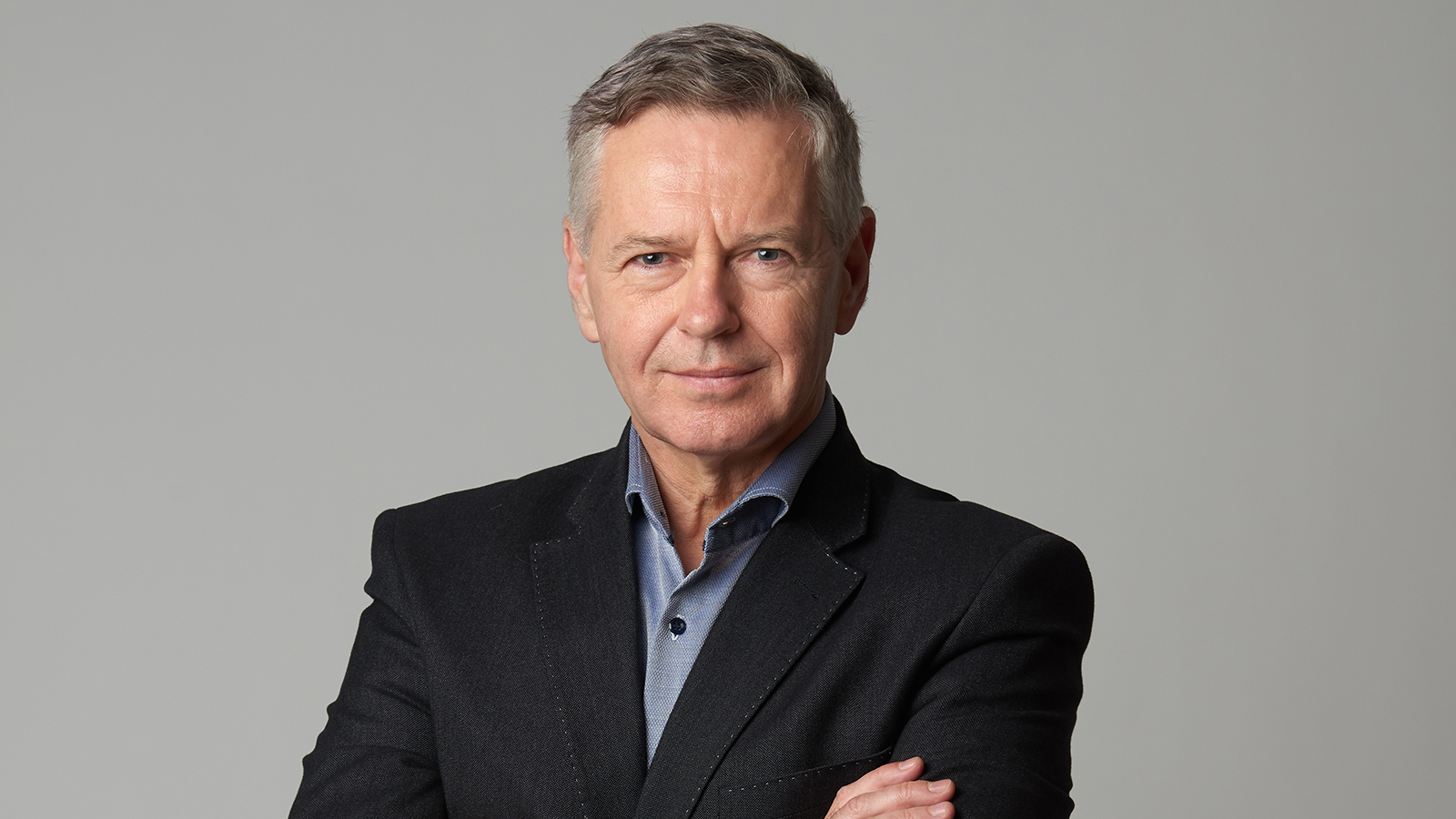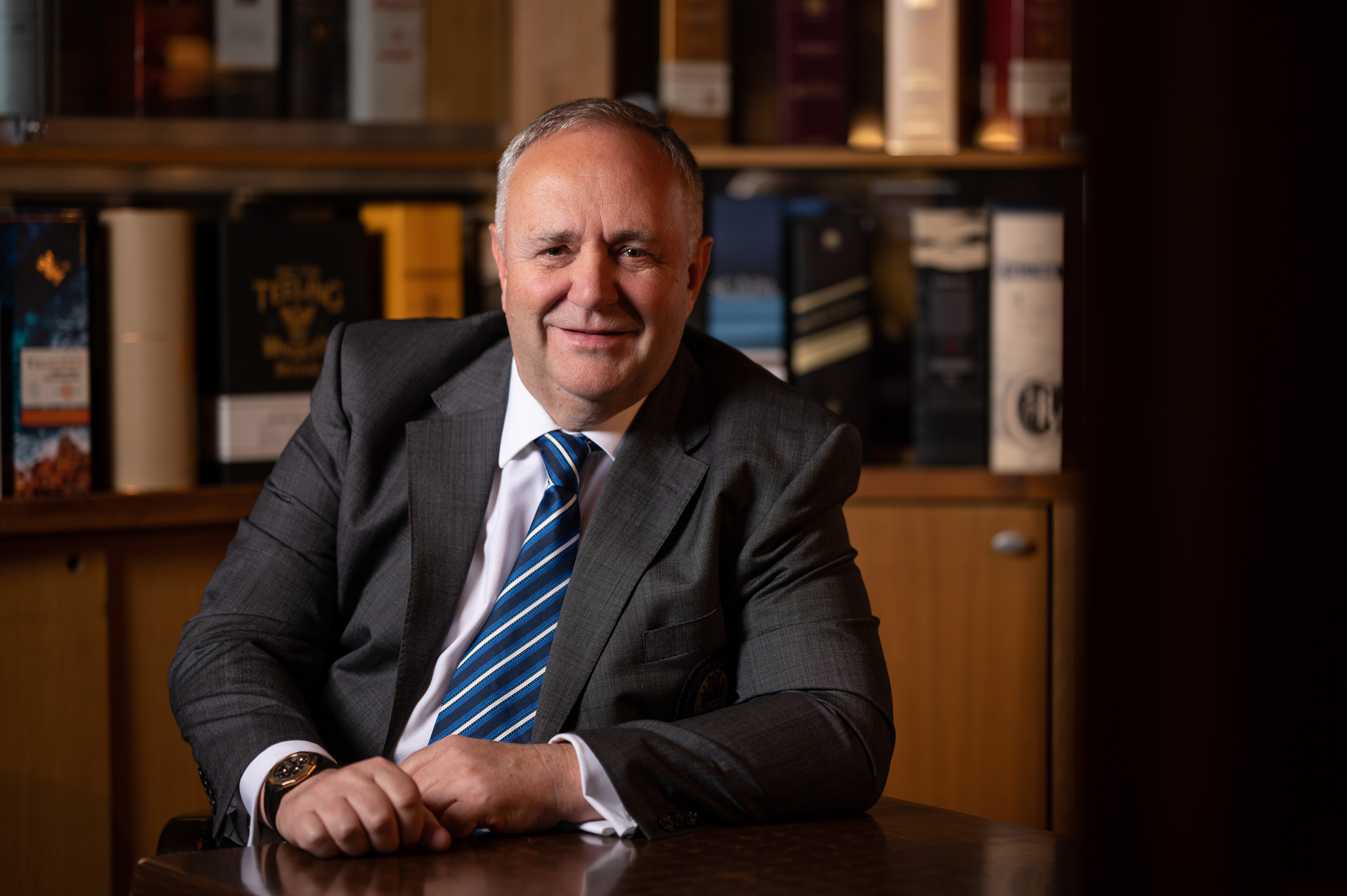Growth, Creative Benchmarking, and the Cost of Sustainability

László Károlyi, CEO of Legrand.
French-based industrial group Legrand is celebrating 30 years on the Hungarian market. László Károlyi, who became CEO in 2004, has been at the heart of it all during this period, and he tells Legrand’s story to the Budapest Business Journal in this exclusive interview.
In the early ’90s, just after the change from a communist command economy to a democratic free market, the then family-owned company with its base in Limoges in central France was looking for business opportunities in the region. It found a Hungarian state-owned company that matched its core business; making household electrical switches, and, in December 1992, the acquisition agreement was signed
Ironically, Károlyi was being considered for the position of business manager by the previous management at the Hungarian firm. He arrived for the final three interviews in January 1993 to find new French owners in place.
Legrand had already picked a business manager, another Hungarian who had worked for them in Algeria but was eyeing Károlyi for the role of modernization project manager, responsible for “docking” the Hungarian entity within the French group. But the change in ownership meant the process became more drawn out, and in March ’93, Károly was flown to Limoges to meet with the family owners.
“For me, it really was not easy. I was working in computer technology, and although I knew French, other than Hungarian, I was mainly used to speaking English. That first night I met the big boss for dinner. Over the following three days, I was interviewed by more than 15 people, from various departments, with lots of questions, and all day we spoke French.” Two weeks later, he was working for Legrand. Much has changed since then.
“When I joined the company, there were around 1,100 people. At that time, many functions were integrated inside the company; it was a classical socialist-era organization. We had park keepers and a lot of drivers.”
Today’s direct head count is 560. But Károlyi adds that another 600-700 people work for subcontractors that rely primarily on Legrand, meaning the overall total of those dependent on the company is broadly the same.
The business has been split into two. The business unit, covering local sales, has doubled its turnover to EUR 26 million since the end of the 2008-12 financial crisis. The original business in household switches now represents less than 50% of the total, as Legrand has moved into sectors like energy distribution, power installation, IT datacom structured cabling, and data center products.
Most recently, EV chargers have been added through the acquisitions last year of Netherlands-based EV charging solution provider Ecotap and the Finnish Ensto Building Systems, which has the fastest growing EV charging stations business in Scandinavia.
The engineering and development or operations unit, meanwhile, had a turnover of EUR 60 mln last year, working for customers across Europe.
3 Key Phases
Károlyi identifies three critical phases in the past 30 years. The first was the six or seven years it took to complete the “docking” period that he oversaw, integrating the Hungarian unit into its French parent.
The second significant period came in the next 10 years, with the restructuring that separated the units. The engineering/operations division, which previously serviced only the local market, quickly became more internationally significant for the group.
“On the one hand, there were a lot of investments, but on the other hand, we balanced development and are now generating profit for the company, and that has been the practice for the last 10 years.” That brings us to the third critical phase.
“Since 2012 and the end of the financial crisis, I was working on how we could create a company culture that generates revenue even in difficult times,” Károlyi explains.
Concentrate on one national market, and you are dependent on its cycles, he says. But cover a region like Europe, and you can find different development trends in different countries at different times.
“That has proven true because, even in COVID, I don’t say it was easy, but we were able to keep pace in terms of evolution and development.” He also came up with a term he says he has trademarked: crenchmarking or creative benchmarking.
“Everybody is speaking about innovation and disruptive technology, but sometimes you can move quicker if you use the crenchmarking approach,” he says.
“If you look at big breakthrough examples, we say that they develop disruptive technology. But in fact, it’s not; it’s crenchmarking, when you benchmark your competitors, but you try to find ideas from elsewhere. Uber was a taxi company that ignored the old way of organization. It took the possibility it found in IT and made this blended solution.” Károlyi even wrote a book on the subject and presented the idea to his group HQ.
Profit Proposal
“In 2012, we lost turnover in the market. And I said, ‘Okay, I have a proposal; give me some free space to organize the local structure, and I promise that in the following three years, we will grow in our local market at double the GDP.’”
With 2012 as the baseline, the idea was to grow the business twice as fast as the GDP percentage growth each year in 2013, ’14, and ’15. “But we realized 12%; not double but four times more growth in the local market!” He says the way Legrand is currently attacking the market, and opening new sectors with new products, is a continuation of that.
“During the COVID-era, we had 13-14% growth. This year, we expect 20%. It’s a clear proof of this approach: that we try to get inspiration from different areas and businesses.” For the future, Károlyi wants to future-proof the company.
“We should be very open to change, even change that is unexpected: COVID, a war, whatever. We have to create some kind of early warning system.” He envisions a dashboard that tracks risk. If a red light starts flashing, it is a warning to be prepared.
The second step is to adapt the business to be flexible and open to reorganizing and acting on what is happening.
Thirdly, he says it is essential to keep up with technology “because, if you delay in the market, you lose your ability to change. If you wait to use or understand it, you miss your opportunity.”
Finally, there is a commitment to sustainability. Legrand Hungary is a member of the Business Council for Sustainable Development in Hungary, and Károly is a climate ambassador.
“If we want to save the world, we should agree that it has a cost. There are three main players: the people, the companies, and the governments. Everybody has a role, and everybody has to pay a bit more. The government should create regulations supporting activities that keep the world as it is. Companies should accept that, for these kinds of products, you may reach less profit. And for the people, well, everybody’s a consumer, so we should accept that green products are sometimes a bit more expensive than non-green products. Nobody can win alone.”
This article was first published in the Budapest Business Journal print issue of September 23, 2022.
SUPPORT THE BUDAPEST BUSINESS JOURNAL
Producing journalism that is worthy of the name is a costly business. For 27 years, the publishers, editors and reporters of the Budapest Business Journal have striven to bring you business news that works, information that you can trust, that is factual, accurate and presented without fear or favor.
Newspaper organizations across the globe have struggled to find a business model that allows them to continue to excel, without compromising their ability to perform. Most recently, some have experimented with the idea of involving their most important stakeholders, their readers.
We would like to offer that same opportunity to our readers. We would like to invite you to help us deliver the quality business journalism you require. Hit our Support the BBJ button and you can choose the how much and how often you send us your contributions.









